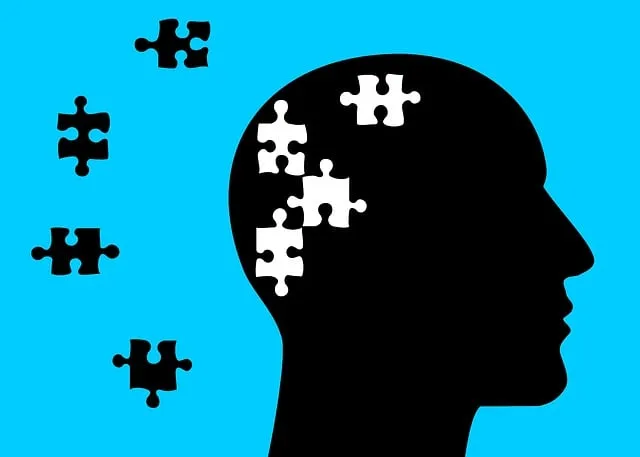Kaiser's Wheat Ridge inpatient mental health facility prioritizes cultural competency as a cornerstone of quality care, addressing diverse patient backgrounds through personalized services and innovative training programs. They focus on building resilience, trauma support, stigma reduction, and open communication to boost patient confidence and improve outcomes. Using data-driven methods like self-assessments and tracking patient outcomes, Kaiser ensures their approaches, such as the Mental Wellness Podcast Series, effectively enhance care and are tailored to meet the unique needs of their diverse patient populations.
Healthcare provider cultural competency training is an essential component of delivering effective, patient-centered care, especially in specialized areas like inpatient mental health services. This article explores why cultural competency matters and how organizations like Kaiser are revolutionizing mental health care through targeted training programs. We delve into specific strategies for addressing diverse patient needs at facilities like Wheat Ridge and assess the measurable impact of these initiatives on key patient outcomes.
- Understanding Cultural Competency in Healthcare: Why It Matters for Inpatient Mental Health Services
- Kaiser's Approach to Training: A Closer Look at Their Programs for Wheat Ridge and Beyond
- Effective Strategies for Inpatient Mental Health Care: Addressing Diverse Patient Needs
- Measuring Success: Evaluating the Impact of Cultural Competency Training on Patient Outcomes
Understanding Cultural Competency in Healthcare: Why It Matters for Inpatient Mental Health Services

Cultural competency in healthcare is an essential aspect that cannot be overlooked, especially within specialized services like inpatient mental health. Kaiser’s Wheat Ridge facility recognizes that understanding and respecting diverse cultural backgrounds are crucial for providing effective care. In today’s diverse society, where patients come from various ethnic, racial, and socioeconomic groups, healthcare providers must be equipped to deliver sensitive and tailored services.
This is particularly relevant in the context of inpatient mental health, where individuals often face unique challenges related to their cultural identities. By promoting cultural competency, Kaiser aims to boost patient confidence and foster inner strength development. Through specialized training, staff can better address issues such as depression prevention, ensuring that each patient receives personalized support. Such an approach not only enhances the overall experience but also contributes to improved health outcomes.
Kaiser's Approach to Training: A Closer Look at Their Programs for Wheat Ridge and Beyond

Kaiser has been at the forefront of healthcare innovation, and their commitment to cultural competency training is no exception. One notable initiative is their program focused on Wheat Ridge and surrounding areas, designed to enhance care for diverse patient populations. This approach involves a multi-faceted strategy that includes Self-Awareness Exercises, Trauma Support Services, and Mental Illness Stigma Reduction Efforts.
The program prioritizes education and engagement, offering workshops and seminars that delve into various cultural topics. These sessions aim to equip healthcare providers with the knowledge and skills to deliver empathetic and culturally sensitive care, especially in inpatient mental health settings where diverse needs may arise. By fostering a deeper understanding of different cultures, Kaiser’s training empowers professionals to navigate complex patient interactions effectively.
Effective Strategies for Inpatient Mental Health Care: Addressing Diverse Patient Needs

At Kaiser in Wheat Ridge, effective strategies for inpatient mental health care focus on addressing diverse patient needs. The facility recognizes that each individual’s journey towards mental wellness is unique, necessitating a tailored approach. To achieve this, staff receive comprehensive training in resilience building and crisis intervention guidance, empowering them to provide compassionate and culturally competent care. By fostering an environment that supports emotional expression and encourages open communication, Kaiser ensures patients feel heard and validated during their stay.
Complementing these practices is the production of a Mental Wellness Podcast Series designed to reach a broader audience. This initiative not only educates but also inspires listeners by sharing diverse stories of mental health recovery. By integrating innovative tools like podcasts, Kaiser Wheat Ridge remains at the forefront of providing holistic care, addressing not just symptoms but also the underlying factors that contribute to mental wellness.
Measuring Success: Evaluating the Impact of Cultural Competency Training on Patient Outcomes

Measuring success in healthcare provider cultural competency training is paramount to understanding its true impact on patient outcomes. Organizations like Kaiser, with inpatient mental health services in Wheat Ridge, have recognized the value of evaluating these programs. Beyond participant satisfaction surveys, they employ a multi-faceted approach to assess effectiveness. This includes tracking changes in provider attitudes and behaviors through regular self-assessments and peer feedback mechanisms.
Furthermore, assessing patient outcomes before and after training reveals crucial insights. By examining metrics such as treatment adherence, clinical engagement, and recovery rates, Kaiser can demonstrate the tangible benefits of cultural competency development programs, including Mental Wellness Coaching Programs, Empathy Building Strategies, and Crisis Intervention Guidance. This data-driven approach ensures that resources are allocated effectively to programs that demonstrably improve patient care and outcomes.
Healthcare provider cultural competency training, as demonstrated by Kaiser’s initiatives in Wheat Ridge and beyond, is a vital strategy for enhancing patient outcomes in inpatient mental health services. By addressing diverse patient needs through effective strategies, these programs not only improve access to care but also foster an environment of understanding and respect. Measuring the impact of such training reveals significant benefits, underscoring its importance in the modern healthcare landscape. Kaiser’s approach serves as a model for other institutions, demonstrating that cultural competency is not just desirable but essential for quality mental health care.






